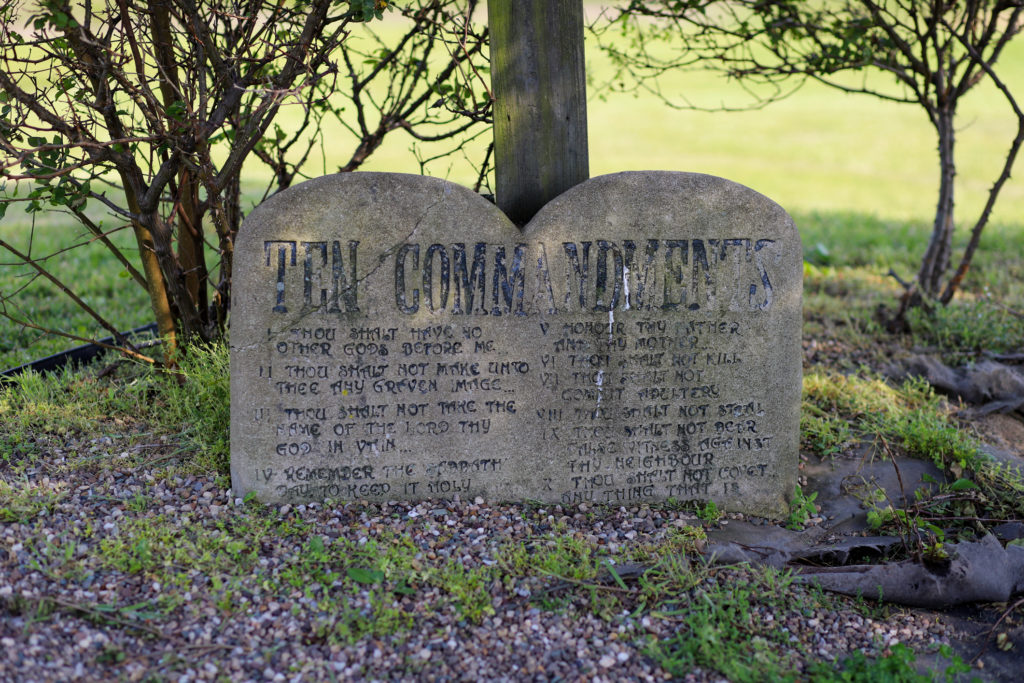
 NASHVILLE (BP) – Countless people are being killed. Daily, death’s onslaught looms.
NASHVILLE (BP) – Countless people are being killed. Daily, death’s onslaught looms.
Some familiar examples:
- The latest officer-involved shooting – and the grief thrust upon the victim’s loved ones as well as the community outcry that follows.
- Mass shootings by those with unimaginably hardened hearts or struggles with mental illness. More agony and another flood of tears.
- TV shows like “Dateline,” “20/20” and “48 Hours” that depict a range of murders every week. There seems to be no shortage of instances to package into tales of killing and woe for an hour or two.
Intentional killing is as old as humankind. Adam and Eve lost one of their sons when Abel was killed by his angry older brother Cain (see Genesis 4).
Throughout history, killing has been a constant. The killing of the earliest followers of Jesus and of religious reformers in the 16th century. The killing that accompanied the American Revolution and the Civil War. Lynchings and other acts of white supremacist terror. The genocide of 6 million Jews and 5 million others by the Nazis – and the overall loss of more than 60 million lives in World War II. The genocide or massacre of millions in Armenia, Russia, China, Cambodia, North Korea, Rwanda, Syria and northern Nigeria. The drug cartels’ murderousness in Mexico and Central America. The escalating plague of murders in our cities.
Ponder it all for a few minutes; think of the horror felt by the person facing imminent death and the gut-wrenching sorrow of family and friends.
Governmental measures have been taken to abate our killing affliction, along with efforts by national and international agencies, institutions and organizations.
Still, humankind kills.
Anti-killing initiatives should continue, as well as debates over various particulars such as gun control, use of force in law enforcement and capital punishment, but let’s not overlook another potential source of help against deadly violence.
Consider the sixth commandment: “Thou shalt not kill,” as Exodus 20:13 is often quoted from the King James Bible translation.
This presumes there is a God, a supernatural God who created our world and all its marvels. At His most intimate level, He is the one who created each of us and stands ready to transform our lives toward peaceableness.
Perhaps an array of creative public service spots on TV and radio could kindly remind that “Thou shalt not kill,” tapping into the persuasiveness of marketing and advertising. A catchy jingle could be composed; winsome celebrities could be enlisted.
What about similar billboards? And, certainly, the pervasiveness of social media could be utilized. T-shirts, hats, posters, bumper stickers and other “merch” could reinforce the “Thou shalt not kill” appeal.
Over the years, the Ad Council and others have exhorted people to wear their seatbelts, to help prevent forest fires, not to litter the highways, not to use drugs, to quit smoking, to recycle and to register to vote. Certainly we can urge people to back away from moments of looming mayhem.
And what about our churches adding their voice?
From the pulpit, during worship, in prayer gatherings, at home Bible study groups, we can declare God’s elevation of the human soul. This redemption of our humanity happens when, in our openness to Jesus Christ, He is imparted to our hearts by the Holy Spirit. And, beyond mere words, we can become Christ’s presence in places of human need, suffering and tumult to reduce the loss of life.
Our churches, in fact, could lead the way, reminding our collective soul, “Thou shalt not kill,” and declaring anew the ages-old adage, Jesus saves.
















